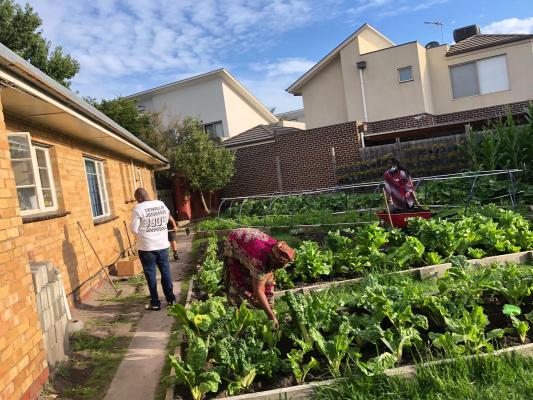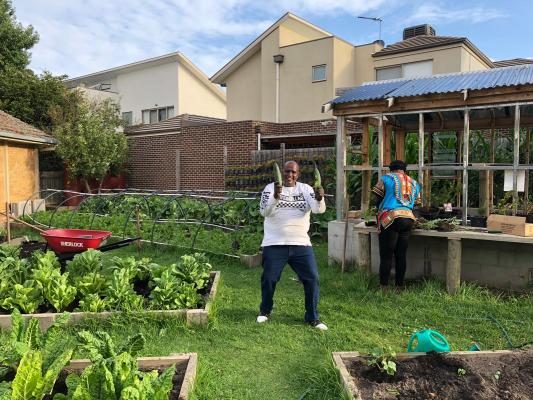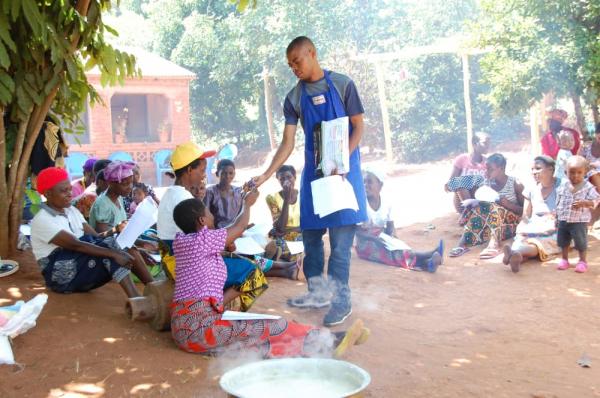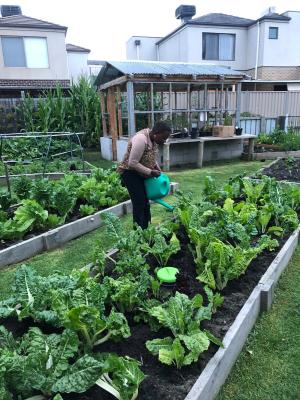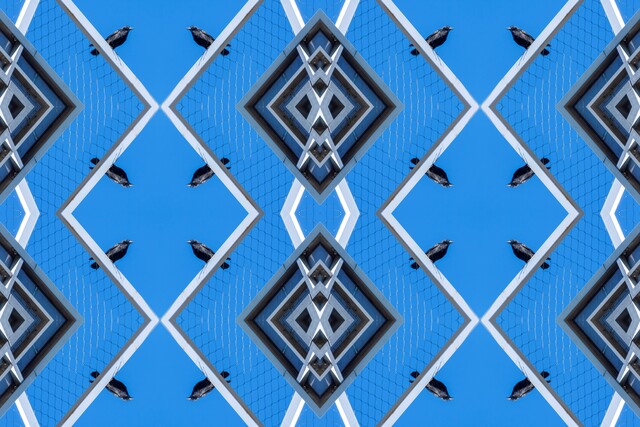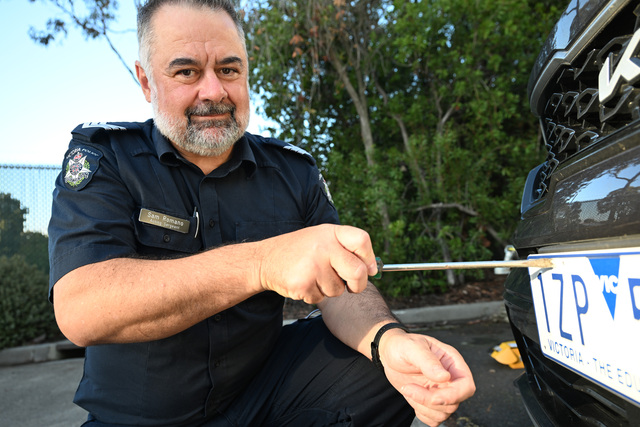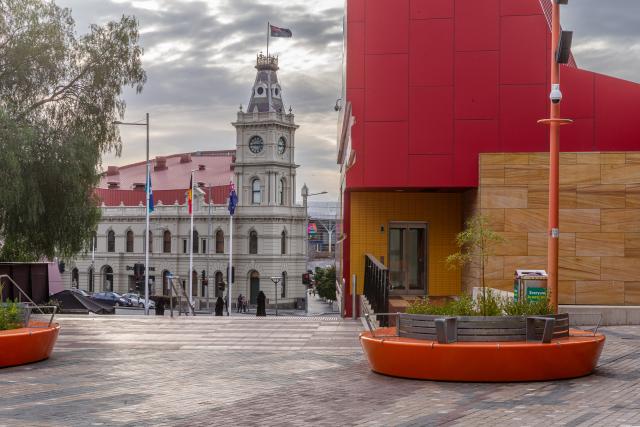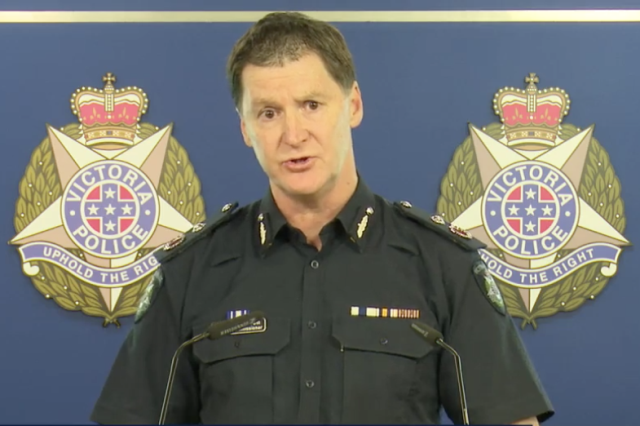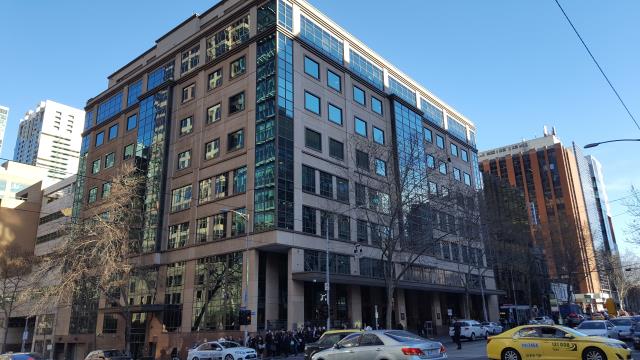Avid gardeners will tell you there’s something beautifully cathartic about getting down and dirty – and for Selba Gondoza Luka and the women who attend Afri-Aus Care’s African Empowering Women’s Group, the proof is in the pudding.
Afri-Aus Care’s ‘Mamas’, as they are known, carefully tend a thriving garden filled with vegetables and herbs of all kinds at Afri-Aus Care – ADRA Community Centre Springvale South.
It’s not just the flora that’s thriving – since its establishment in July 2019, the garden has brought happiness and calm to the African-Australian women and youth, who are often traumatised or experiencing psychosocial challenges in the wake of their settlement in Australia.
The garden is the brainchild of Afri-Aus Care CEO and founder and co-founder of Black Rhinos Basketball Club Ms Luka, who experienced family violence and severe mental distresses when she first arrived in Australia.
For Ms Luka, as a newly arrived migrant family with limited English and mother of an eight-year-old daughter, life in Australia was completely different and filled with unforeseen challenges.
After suffering from postnatal depression and the loss of her 7-month-old daughter, she then had to spend time in a psychiatric hospital receiving treatment for Major Depressive Disorder and Generalised Anxiety Disorder.
While Ms Luka was admitted to hospital, in an unfair decision her employer terminated her employment contract. Ms Luka’s job loss not only aggravated her mental health but also led to family violence which unfortunately caused the family breakdown and disconnection between her and Kwacha, her only daughter.
But none of these traumatising experiences could defeat her; instead of seeing herself as a victim of the surrounding circumstances, Ms Luka established Afri-Aus Care with the aim of offering culturally appropriate holistic care, to the people who are going through what she experienced for several years – the support that she had not received while she was struggling with some of the most terrifying moments of her life.
Ms Luka shares her story with Afri-Aus Care participants to provide social and mental support.
“One of the pathways that assisted me to gradually heal from depression and anxiety was attending to my vegetable garden at the back of my house between 2001 and 2014, I lived in darkness for a long period of time,” she explained.
“Slowly I came to realise a different picture of myself by telling people what I was going through because I believe in storytelling.
“This is a common way that we support each other where we come from, motherland Africa.
“Storytelling has assisted me.”
Storytelling now also forms part of the Ubuntu guidelines that underpin Afri-Aus Care’s framework.
After the establishment of Afri-Aus Care, with the support of ADRA, Dandenong Volunteer Resource Service and some community members, Ms Luka maintained that tradition of storytelling and encouraged other African-Australian women and youth to do the same.
Based on her own experience, Ms Luka knew that other African-Australian women and their children were also experiencing anxiety, post-traumatic stress and depression as they navigated a new country, with many of them feeling like they had nowhere to turn.
Ms Luka said the results of such experiences have been horrendous, with some passing away from premature and preventable deaths.
Others are victims of family violence, youth being overrepresented in prisons, relationship breakdowns, under or unemployment issues, unresolved and untreated mental illnesses, and intergenerational conflict.
“The idea of using the garden as a tool for social connection and therapy for those experiencing mental health concerns, began from the history of African-Australian mature aged women who are used to working in the fields in motherland Africa,” she explained.
“However, in Australia many African-Australian women find themselves without fields and flora to tend to, without work, isolated and depressed, without any support, because of all the stigmas and taboos around mental health. Resettlement challenges are also prominent within African-Australian communities,” Ms Luka said.
“In supporting the women, I wouldn’t just start explaining the physiological symptoms of depression such as consistent low energy levels, decreased pain tolerance, back pain or muscle pain, headaches, stomach pain or uneasiness in the abdomen, weight loss, weight gain, sleep problems, ruminating thoughts about negative experiences, suicidal thoughts, to name a few. Having experienced most of these symptoms, I decided to share my story and the Ubuntu concept to show them that they are not alone, to eliminate the stigmas and also to encourage them to share their stories. This was achieved by the support we received from ADRA Victoria. They provided us with a four-bedroom house, now called Home of The Community Members, and we share stories in a garden planted and designed by dedicated community members; the garden which now symbolises hope, growth, and rebirth.
While gardening, the women talk about their trauma and challenges and how to access culturally appropriate medical specialists for further assessment and support.
The women are also supported and are advised to use a tool called The Positive Change Model, which Afri-Aus Care is developing.
The University of Melbourne is currently doing a research about the practice of Ubuntu with the mamas and community members who attend Afri-Aus Care’s programs.
Ms Luka said the simple acts of tilling soil, planting seeds, and harvesting the crops has had a calming and transformational effect for many community members who attend the garden – both young and mature aged.
The youngest is a four-year-old who is interested in worm farming. The child and his mum assist Ms Luka with feeding and caring for the worms which are part of compost making for the garden.
Now, the women are studying English and are assisted with employment pathways, cooking on budget, creating a recipe book, and sewing while working in group activities at the centre and maintaining their cultural beliefs across generations.
“It’s very therapeutic to be connected to the earth,” Ms Luka said.
Afri-Aus Care has managed to offer paid employment to some of the mamas and their children with the support from a number of government bodies, and organisations like DPC, City of Greater Dandenong, Community Four, ADRA, Victoria Police Multicultural Liaison South East Metro, The City of Melbourne, The University of Melbourne, ADF and Taskforce Agency, and a number of Rotary Clubs from District 9800.
This is a pathway to overcome the intergenerational gap which is one of the major issues that leads to young people connecting with the justice system.
“As a mental health clinician, I assist them to understand that having trauma is part of life, but they can overcome that by doing good for others or getting connected with nature.
“Gradually, women are beginning to see that this is a better way of getting out of the house and to start contributing to the society,” Ms Luka said.
None of the food goes to waste – the women take part in cooking classes at the community centre, using what they’ve harvested.
The small plot of land gives bumper yields and there have been times when it has fed up with 60 families with African vegetables called Sukumawiki and African Rocket salad.
Now, Ms Luka, who was named Citizen of the Year in last month’s Greater Dandenong Australia Day Awards, is looking to take her ideas to her home country of Malawi, to establish a community garden to help villagers who are struggling with their own psychosocial issues and trauma that has been caused by the Covid-19 pandemic.
The plan is to set up gardens like the one in Springvale, to assist people to grow their own food – alleviating hunger by providing a steady source of food – and giving them a space to help each other and talk about any issues they may be experiencing.
With the help of the Rotary Passport Club of Melbourne, of which Ms Luka and her daughter Kwacha are Charter Members, Ms Luka has established online mental health and wellness sessions with some of the participants who reached out to her for support and now she wants to extend free services to the villagers in Malawi.
“Usually in Africa, we would help each other – but because of Covid-19, and lack of enough land to cultivate vegetables, it’s really hard for people to take care of one another,” Ms Luka said of the rationale behind the project.
Ms Luka has faith that the project will be delivered successfully in Malawi, she said this is the time when people in the diaspora need to think hard so that the can assist people in their home countries.
Ms Luka has a diverse strong team on the ground already who are working hard to implement what they are doing here in Australia.
The group consists of Ken MacHence Gunsalu, a Malawi-born scientist with an interest in sustainable food systems; Sam Onanda, a British-Kenyan member of the African Chamber of Commerce in China; Dr. Bob Alexander from Hawaii, an international researcher and practitioner in community-based development; Malawian professional Madalitso Gondoza; Moreblessing Shumba, a UK-based mental health clinician and domestic violence advocate; Mo-Giovanna, founder of Mental Wealth; and Peace Kalua a Malawi national, founder of the Pamodzi Social Enterprise.
From Australia, they will be assisted by the Rotary Passport Club of Melbourne, members from other Rotary Clubs from District 9800, Afsaneh Jasmine Majidi a qualified Counsellor and psychotherapist, Kemalie Bairami, a Mental Health Professional and Doctoral Candidate of Clinical and Forensic Psychology, Vivivan Tong and Herbson Singo, Social Workers; Atong Ayom, the Youth Coordinator; Adau Bar ,Youth Worker; Beacky Kalo, Youth Leader Jamy Alex Black, Co-Founder Rhinos Basketball Club, Ms. Luka herself and her daughter, Kwacha Luka, who is a mentor to African youth both here and in Africa.
The garden will be constructed in Mpemba in Malawi, and the villagers are already excited about the new development.
What they need now, though, is donations to assist with extending a building block and resources to run mental health and gardening sessions to the community members in Mpemba.
Ms Luka said the focus is on empowering other people, especially vulnerable women, to speak out about their problems, voice their opinions and uplift each other in culturally appropriate way to live a meaningful life.
Ms Luka said she is grateful to government departments, stakeholders, volunteers and individuals who believe in her dreams – “we now have a genuine pathway for women and youth empowerment regardless of our traumatic backgrounds”.

